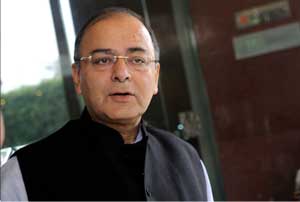- Home
- Medical news & Guidelines
- Anesthesiology
- Cardiology and CTVS
- Critical Care
- Dentistry
- Dermatology
- Diabetes and Endocrinology
- ENT
- Gastroenterology
- Medicine
- Nephrology
- Neurology
- Obstretics-Gynaecology
- Oncology
- Ophthalmology
- Orthopaedics
- Pediatrics-Neonatology
- Psychiatry
- Pulmonology
- Radiology
- Surgery
- Urology
- Laboratory Medicine
- Diet
- Nursing
- Paramedical
- Physiotherapy
- Health news
- Fact Check
- Bone Health Fact Check
- Brain Health Fact Check
- Cancer Related Fact Check
- Child Care Fact Check
- Dental and oral health fact check
- Diabetes and metabolic health fact check
- Diet and Nutrition Fact Check
- Eye and ENT Care Fact Check
- Fitness fact check
- Gut health fact check
- Heart health fact check
- Kidney health fact check
- Medical education fact check
- Men's health fact check
- Respiratory fact check
- Skin and hair care fact check
- Vaccine and Immunization fact check
- Women's health fact check
- AYUSH
- State News
- Andaman and Nicobar Islands
- Andhra Pradesh
- Arunachal Pradesh
- Assam
- Bihar
- Chandigarh
- Chattisgarh
- Dadra and Nagar Haveli
- Daman and Diu
- Delhi
- Goa
- Gujarat
- Haryana
- Himachal Pradesh
- Jammu & Kashmir
- Jharkhand
- Karnataka
- Kerala
- Ladakh
- Lakshadweep
- Madhya Pradesh
- Maharashtra
- Manipur
- Meghalaya
- Mizoram
- Nagaland
- Odisha
- Puducherry
- Punjab
- Rajasthan
- Sikkim
- Tamil Nadu
- Telangana
- Tripura
- Uttar Pradesh
- Uttrakhand
- West Bengal
- Medical Education
- Industry
Modicare to be cashless not reimbursement base scheme informs FM

New Delhi: Finance Minister Arun Jaitley said the world's biggest health cover plan announced in the Budget will be cashless and not a reimbursement scheme, and promised more funds if required depending on the rollout later next financial year.
The National Health Protection Scheme (NHPS) touted as ModiCare envisaged to provide medical cover of up to Rs 5 lakh to over 10 crore poor and vulnerable families, constituting 40 percent of total population.
"It takes care of hospitalisation, the secondary and tertiary care. Obviously, it will involve various state hospitals and selected private hospitals. It can be on the trust model, it can be on the insurance model. It's not on reimbursement model because too many complaints come on the reimbursement model," he said in New Delhi.
The model is now being worked out between NITI Aayog and Health Ministry, he said adding the date of implementation would be next financial year and sometime in the course of the year it will be worked out.
If assuming the model to be insurance led, the premium shrink with the increase in a number of policyholders, he said at an event organised by Open magazine.
The scheme although appreciated by experts also raises apprehension about its implementation and the initial corpus of just Rs 2,000 crore.
Assuring that the scheme will be entirely state-funded, Jaitley said initial funds of Rs 2,000 crore has been allocated and whatever funds required, as the scheme rolls over, would be made available.
"In the coming year, I see the more comfortable situation as far as revenues are concerned because the graphs as far as direct tax is concerned would move very fast," he said.
Following demonetisation and implementation of Goods and Services Tax, the number of direct tax assesses have gone up ... once anti-evasion measures, I do expect a little bump up in the GST collection also. I don't see revenue going to be a major challenge in that," he said.
On Thursday, Jaitley in the Budget speech said, "We are all aware that lakhs of families in our country have to borrow or sell assets to receive indoor treatment in hospitals. Government is seriously concerned about such impoverishment of poor and vulnerable families. Present RSBY provides annual coverage of only Rs 30,000 to poor families."
Several state governments have also implemented supplemented health protection schemes providing varying coverage, he had said in the Lok Sabha.
The finance minister also advocated that the central and the state government can pool in resources for health care to achieve efficiency.
He also emphasised on having better hospitals in rural areas even though Tier I and Tier II cities have good hospitals.
Setting up of hospitals in various districts in the state subject under the federal structure, he added.
Read also: Universal health coverage, 24 new medical colleges: Union Budget 2018 Health Highlights


